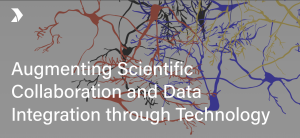Davis Lab

Dr. Davis’ research centers around utilizing both the advancing fields of invasive neurophysiology and neuroimaging to better localize epileptic networks in medication refractory epilepsy patients. She hopes that improving localization will enable epileptologists to better localize epileptic networks and assign individual patients to the most efficacious therapy, for example, seizure control devices, resective surgery, or continued medical management.
View Davis Lab website here.
Litt Lab

The Litt laboratory translates NeuroEngineering research directly into patient care. We collaborate broadly across disciplines to invent, develop and test new technologies and apply them to basic and clinical research.
While epilepsy is the lab’s core focus, our multidisciplinary efforts span a variety of scientific and clinical areas, including brain-machine interfaces, functional neurosurgery, network and computational neuroscience, movement disorders, intra-operative and ICU monitoring, and a broad array of “brain network” disorders.
View Litt Lab website here.
Vitale Lab

The goal of our lab is to create novel technologies to study, monitor and treat neurological and neuromuscular disorders such as epilepsy, Parkinson's, nerve injury, and chronic pain.
Our research focuses on engineering the electrochemical, mechanical and optical properties of nanostructured materials and integrating them in soft, multimodal bioelectronic interfaces that can seamlessly monitor and modulate the nervous system at high spatio-temporal resolution and at multiple scales, from individual cells to large-scale circuits.
We are a multidisciplinary group bringing together engineers, physicists, materials scientists, neuroscientists, and clinicians with the ultimate goal of translating our research findings into clinical care.
View Vitale Lab website here.
Wagenaar Lab

With the ever-increasing ability to generate large-scale, complex, multi-modal scientific datasets, it is clear that the scientific community needs to invest in better tools, mechanisms, and infrastructure to facilitate, and accelerate scientific progress.
The Wagenaar Lab at the University of Pennsylvania develops scalable platforms, and tools for the next-generation data scientists and clinicians to enable them to accelerate their research. Our projects include the development of advanced cloud-based technologies, novel tools for analyzing distributed scientific data, and mechanisms to foster collaborative science with a focus on integration, scalability, and sustainability.
View Wagenaar Lab website here.
